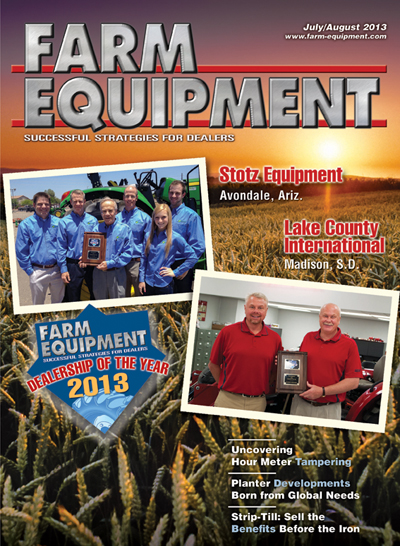Advertise Follow Us
Farm Equipment

View Archived Issues
July/August 2013
Volume: 51
Edition: 6
Dealership of the Year 2013
PLUS: How to sell strip-till equipment, an exploration into the prevalence of tractor hour meter tampering, developments in speed and accuracy of planter and seeder technology and more.
-
Table of Contents
Table of Contents
- Featured Articles





